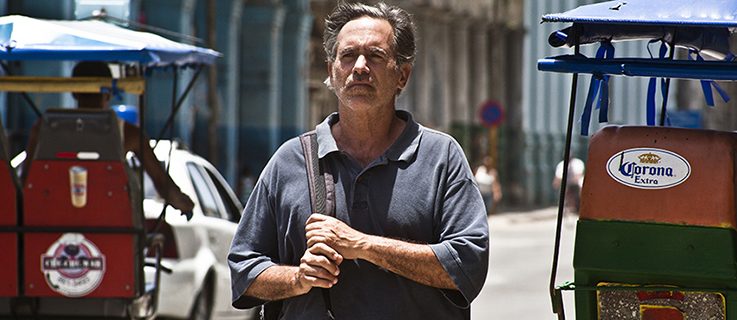Filmmaker Fernando Pérez searched over 20 neighbourhoods in Old Havana to find the location for “Últimos días en La Habana”, the film he presented in the Berlinale’s Special section.
Miguel and Diego, two friends united by the past but separated by their conflicting personalities, live in one of these working-class neighbourhoods. Introverted, dark and mysterious, Miguel (aged 45) works as a dishwasher in a restaurant, while waiting to get a visa to emigrate to the United States.
Diego, gay, is the same age and is bedridden, terminally ill with AIDS. But he displays an enormous will to live. He is extroverted, talkative, jovial. But he is also fully dependent on Miguel, whom he reproaches for his lack of joie de vivre.
Últimos días en La Habana is not a film of revolutionary or counter-revolutionary slogans, but it is elegantly underpinned by criticism and protest. These are heightened by the arrival of Yusisleidys, Diego’s niece, a pregnant teenager whose brazenness and brutal honesty get her into trouble with the authorities. “Yusisleidys is an open window on what I want for young Cubans. I know many who have initiative, principles, their own thoughts and they want to express them. That open space is one of the things I want to offer with the film”, comments Pérez in an interview with #Berlinaleblogger.
Human relationships are the central theme. Últimos días en La Habana is a tribute to an unusual friendship, but also a love letter to the Cuban capital and its idiosyncratic cheerfulness. “There is simplicity in the lives of many Cubans”, comments the director of Suite Habana. “But there is also a way of tackling life with depth. We think they are simple people, but in the end they are more complex than ourselves; we who agonise and fail to find the solution to life.”
As regards being gay in Cuba, Pérez states that “at the grassroots level, there is no prejudice towards homosexuals.” The director describes Diego as openly gay, exposed to the world and fully accepted by his environment, his city. Pérez portrays Old Havana, a place bubbling with life, with painstaking cinematography.
